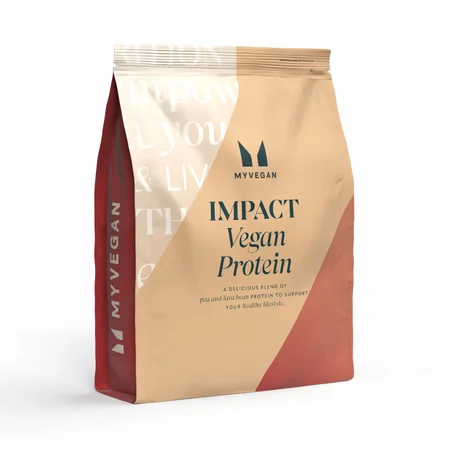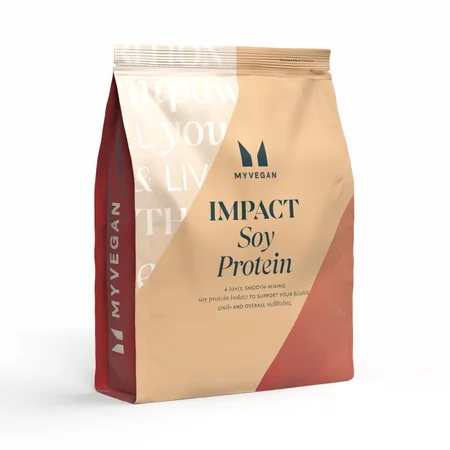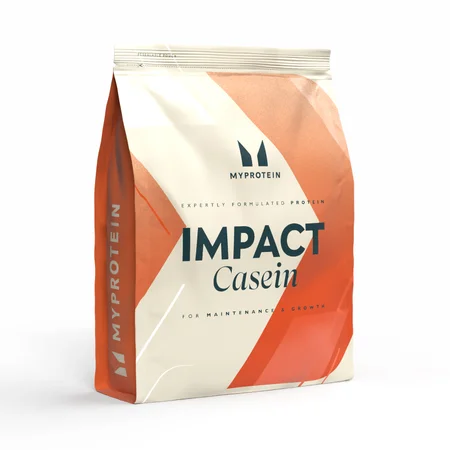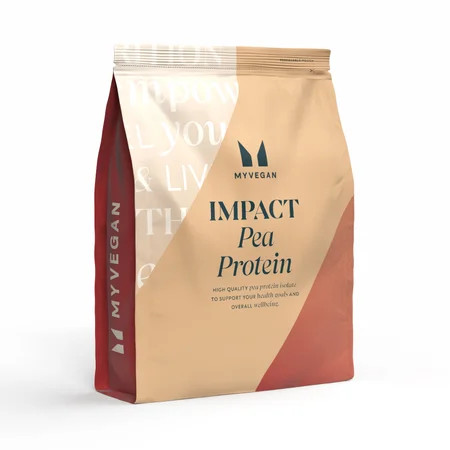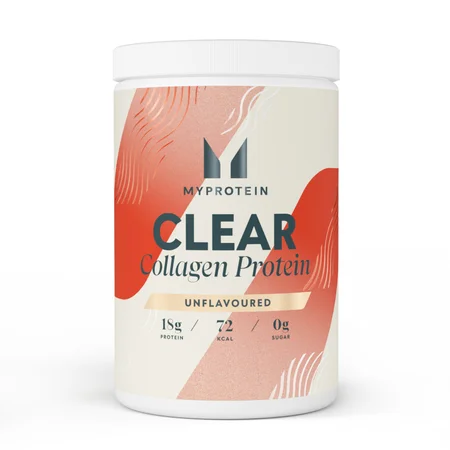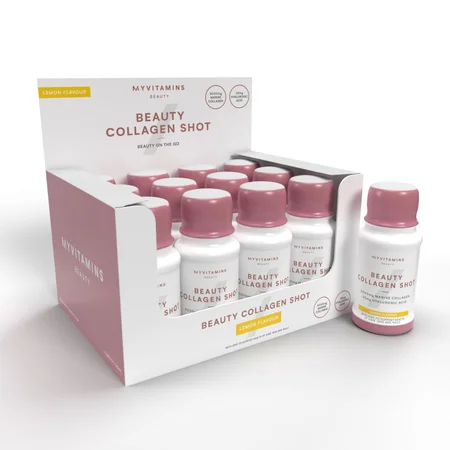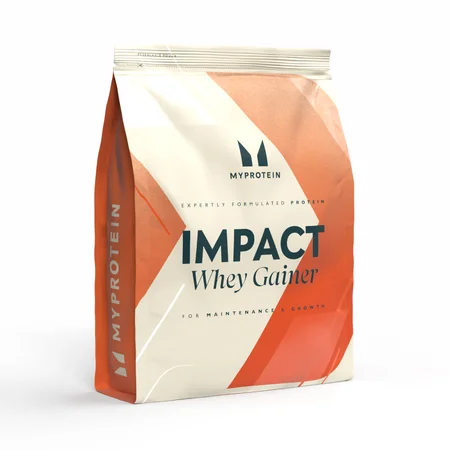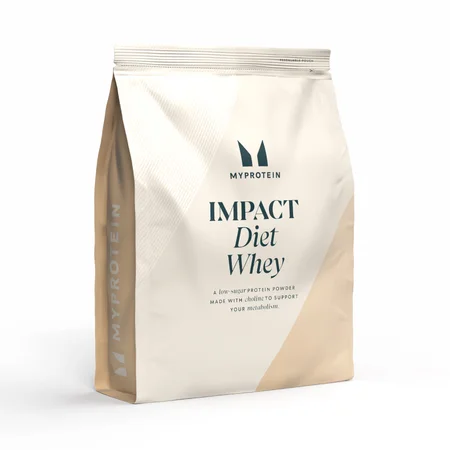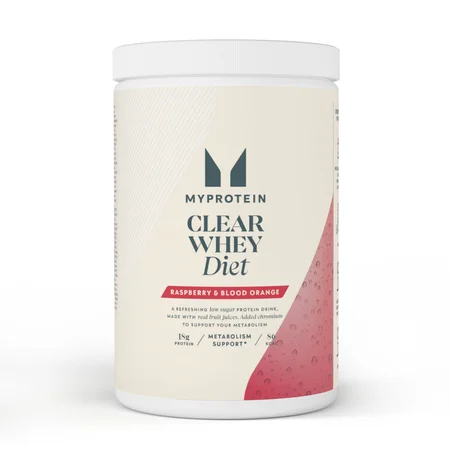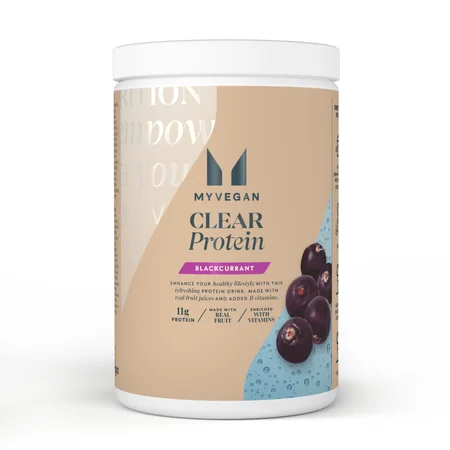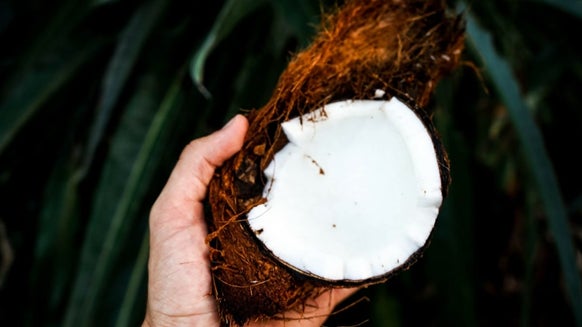The Complete Guide To Protein Powders For Beginners

When you hear the words "protein powder", you might picture muscle-bound gym-goers who lift heavy weights. But protein powders aren't just for those with bodybuilding goals — even those new to the gym scene can benefit from using them. Here's our complete guide to protein powders for beginners.
- What is protein powder?
- What are the benefits of protein powder?
- How much protein do you need?
- What are the different types of protein powder?
- Which protein powder is best for beginners?
- Which protein powder is best for my goals?
What is protein powder?
Protein powder is a supplement made by extracting protein from various sources. The most popular form is whey, but it can also be made from egg white, soy or pea.
During its production, the carbohydrates, fats, and minerals are removed, leaving pure protein. Nutrients, flavourings, and some other ingredients are then added.
The final product is a powder that can be rehydrated with milk or water, or even added to recipes. They come in a variety of flavours, including plain, and can cater to a range of dietary or lifestyle needs.

How Your Whey Protein Is Made | Inside Our UK Protein Factory
Come behind the scenes at our factory in Warrington.
What are the benefits of protein powder?
Everyone needs protein. For most people, it's easy to get it from their diet. But sometimes you might not be able to get enough or just don't have the time to whip up a protein-packed meal. That's where protein powders come in handy.
Most protein powders are complete proteins, meaning they give your body all the essential amino acids it needs. But they offer more than just nutrition — they can have a host of other perks:
Weight management
Protein is highly satiating, meaning it fills you up quickly and keeps you feeling fuller for longer. This makes it ideal for anyone who is looking to manage their weight.
Muscle growth
Protein is crucial for building muscle. A review of 49 studies found that protein supplementation significantly improved the size and strength of muscles in healthy adults who did resistance training, like lifting weights.
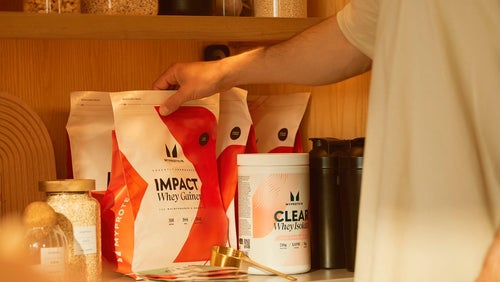
The 8 Best Supplements For Muscle Gain
Is growing muscle on your agenda? Then you've probably considered supplements – read this first.
Recovery after exercise
When you exercise, you create microtears in your muscles. Once healed, your muscles become stronger. To help this repair happen, you need to consume protein.
Convenient
Protein powder is easy and quick to use — just mix it with milk or water. It's perfect for post-workout refuelling, breakfast, or snacks. Plus, if you're new to using it, you won't have to stress over counting macros in your food — you'll know exactly how much is in each scoop of powder.
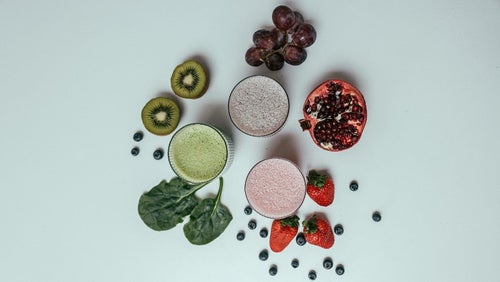
Benefits Of Protein Shakes Before Bed
It's time to switch up your midnight snack.
How much protein do you need?
The UK government recommendation for adults is 0.75g of protein per kg of body weight per day. That’s about 55g per day for the average sedentary man and 45g per day for the average sedentary woman. The recommendation increases according to your activity level.
What are the different types of protein powder?
If you're looking to up your protein intake, you'll need to know the different types available. Here's a rundown of the most common ones:
Whey Protein
A milk protein that's easily dissolved in water, making it a favourite among athletes and gym-goers for its convenience. Whey is a complete protein, meaning it contains all the amino acids your body needs, and is quickly and easily absorbed.
Whey Isolate
The ideal option for anyone who wants the benefits of whey’s amino acid profile and high protein content but without the extra couple of grams of fat.
Whey Isolate is filtered more than whey concentrate, meaning most of the fat and lactose is removed in the filtration process.
Each serving comes in at under 100 calories too, so better for anyone looking to boost their protein to aid a weight loss journey.
Clear Protein
Made from high quality hydrolysed whey protein isolate, it has all the benefits of a complete amino acid profile and high protein content while being a light and refreshing shake.
Ideal for summer and anyone who struggles to get a creamy shake down pre or post-workout.
Soy Protein
If you're avoiding dairy, then soy protein, made from soybeans, is a great plant-based alternative. Like whey, soy is a complete protein.
Casein
Another dairy-based protein, casein is rich in glutamine, an amino acid linked to faster muscle recovery after exercise. It's digested a lot slower than whey, so it's best taken at night.
Pea
Plant-based and high-quality, pea protein is a great alternative to soy and dairy-based proteins. Pea protein a good source of arginine, an amino acid.
Remember, protein powders can vary in price and quality, so make sure you check the ingredients and nutrition on the packaging before you buy to get the best value for your money.
Collagen protein
A bit of a wildcard, collagen protein’s main function isn’t to support muscle growth, but to support different tissue types in the body, although it does still support muscle growth too.
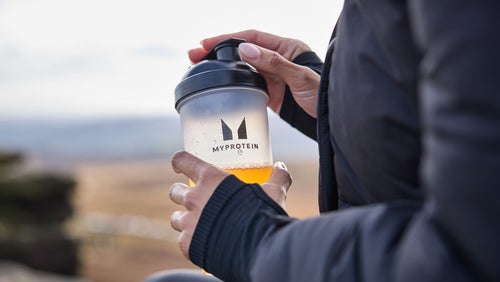
What Is Collagen Protein | What Are The Benefits?
Could collagen be right for you?
Collagen breaks down as we age, so adding a supplement into your diet is ideal to keep those levels up.
Our Collagen Protein contains 18g of protein and supports hair, skin, nails, joints, bones and muscle.
Weight gainer
If you’re looking to gain mass, you need lots of calories and lots of protein. Our Weight Gainer blend contains 30g of protein per serving and over 50g of carbs, to boost your protein intake and calories all at once.
Which protein powder is best for beginners?
If you're a beginner looking for the best protein powder, you'll need to consider your fitness and health goals, as well as your diet preferences. Don't just go for the cheapest option — make sure to check the ingredients, nutrition info and preparation instructions. A cheaper powder might have less protein, meaning you'd need to use more and end up spending just as much.
Which is the best protein powder for my goals?
The best protein powder for building muscle
To bulk up, you'll want a powder that gives you plenty of high-quality protein. The Impact Whey Gainer boasts a massive 30g of high-quality whey protein, making it perfect for getting those gym gains.
The best protein powder for losing weight
If weight loss is your goal, protein supplementation can really help. Protein keeps you feeling full for longer, reducing the urge to snack, so starting your day with a high-protein meal is a great idea. A casein-based powder is recommended, as it takes longer to digest than other proteins, making it great for blood sugar levels and keeping you satisfied.
You may also want to consider diet protein blends as they have more added to help aid your progress, such as fibre, vitamins and minerals. Often, eating changes for weight loss can leave you missing out on these essential nutrients, so a replacement blend such as Impact Diet Whey can help you manage this.
The best protein powder for toning
If you're looking to tone up and build lean muscle, then a protein powder can be a great tool to help you achieve those goals. Impact Whey Isolate is a shake that's high in protein and low in sugar, with zero fat. This makes it a great option for helping you manage hunger and stay fuller for longer.
The best protein powder for a vegan lifestyle
If you follow a vegan diet, there are plenty of options available when it comes to protein powders. Soy Protein Isolate is a great choice if you're looking to build muscle, while Clear Vegan Protein is perfect if you're trying to lose weight. Made from pea protein, it comes in three fruity flavours and is low in carbs. Pea Protein Isolate is also a good option for toning, as it has a high protein-to-carb ratio.
The best protein powder for pre-workout
Making sure your body is fuelled before a workout is essential for getting the most out of it. While it's best to eat a balanced meal 2-3 hours before, that's not always possible. That's where a convenient protein shake comes in handy. Whey protein is a great option to drink around an hour before a workout, and you can even add other ingredients to boost its nutritional value.
The best protein powder for post-workout
When it comes to post-workout recovery, it's important to refuel your body with protein, energy and fluids that have been depleted during exercise. A whey-based protein powder is a good option as it is quickly broken down by the body, providing your muscles with the necessary amino acids within an hour of working out. On the other hand, a casein-based powder is digested much slower, making it a better choice for a late-night workout.
How can I use protein powder
Protein powder isn't just for milkshakes. It's actually quite versatile and can be used in a variety of meals and baked goods. Their versatility means you can mix it up and enjoy a range of different snacks to keep your progress interesting. Protein powders have evolved from the simple strawberry, vanilla and chocolate flavours that you might be used to a range of flavours, some products offering 40 flavours, including unflavoured.
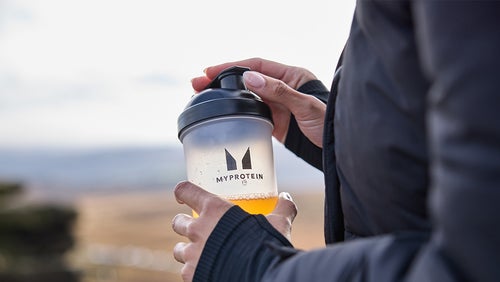
Myprotein's Best Whey Protein Flavours According To You
If you’ve ever found yourself in a protein-picking dilemma, a good place to start is what’s the most popular.
You can simply add a scoop to yoghurt, oats and smoothies, but there are also plenty of yummy recipes you can try. For breakfast, there's Cinnamon Danish Overnight Oats, Banana Pancakes or French Toast Bites. For a post-workout snack, try Pumpkin Spice Banana Bread, or go all out with Fudgey Chocolate Brownies or Gooey Marshmallow Cookies for a real treat.
Take Home Message
Protein powders can be a great tool, whatever your fitness goals. With loads of options to choose from, it might be worth trying out a few first to see what’s best for you. And don't just stick to adding the powder to water or milk. There's no need to limit yourself — get creative and try out different recipes.
READ THESE NEXT:

Top 5 Supplements For Weight Loss
These could help kickstart your weight-loss journey or bust a plateau.
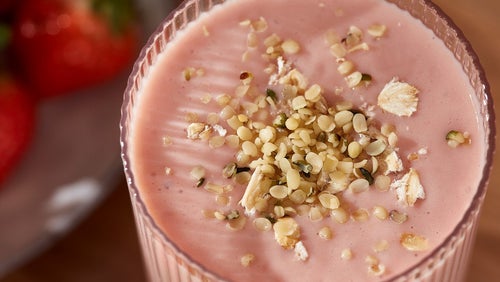
Protein Shakes For Weight Loss
Here's how to use protein shakes to your advantage.
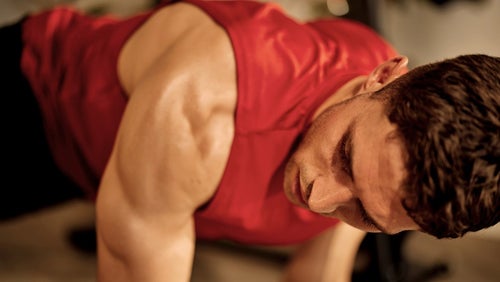
How To Build Muscle | 9 Top Supplements For Bulking
Need a helping hand to make those extra gains?


